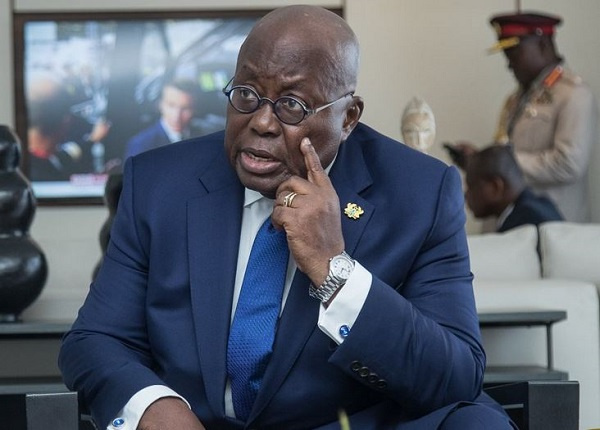Finance Ministry wants President Akufo-Addo to defer assent to Anti-LGBTQI Bill
It has also suggested an effective engagement with conservative countries, including the Arab countries and China, to trigger resources to fill in the potential financial gaps likely to be created by the passage of the bill.

The Ministry of Finance has called on President Nana Akufo-Addo to defer assenting to the newly passed anti-LGBTQI bill by parliament until the court rules on the legal issues tabled by key national stakeholders.
It has also suggested an effective engagement with conservative countries, including Arab countries and China, to trigger resources to fill in the potential financial gaps likely to be created by the passage of the bill.
On February 28, 2024, the Parliament of Ghana passed the Proper Human Sexual Rights and Ghanaian Family Values (“Anti-LGBTQ”) Bill. The bill is yet to be forwarded to H.E., the President, for assent. The passage of the bill has triggered reactions from some of Ghana’s development partners, international financial institutions, and CSOs in the country.
Thus, in a three-page report of an emergency meeting with the Chief Directors, the Director, the Governor of the Bank of Ghana, and the Commissioner General of the GRA, the ministry adds that Ghana is likely to lose US$3.8 billion in World Bank financing over the next five to six years if the bill is assented to by the president.
Further, the report indicates that even though there is no direct conditionality in the IMF-ECF program relating to the passage of the bill, the principles of the current IMF-ECF program are built on predictable financing from development partners, including the World Bank; thus, the non-disbursement of budget support from the World Bank will derail the IMF program.
Additionally, the Ministry argues that once the IMF program is derailed, it is likely to have an impact on the debt restructuring program since negotiations with the Official Creditor Committee (OCC) and Eurobond holders under Ghana’s debt restructuring program are predicated on the success of the IMF program.
Also, it notes that it has been informed per several discussions with officials of the German government that it is against the passage of the bill, and given Germany’s relatively strong influence in the European Union and the Official Creditor Committee, there is a need to manage the relationship to forestall a strong negative reaction.
In conclusion, the ministry has indicated that it will continue to engage with the IMF on alternative credible sources of funding that will plug the financing gap and added that the passage of the new bill calls for fortifying local financial systems, strengthening African financial institutions, and our development journey in partnership with other countries.


